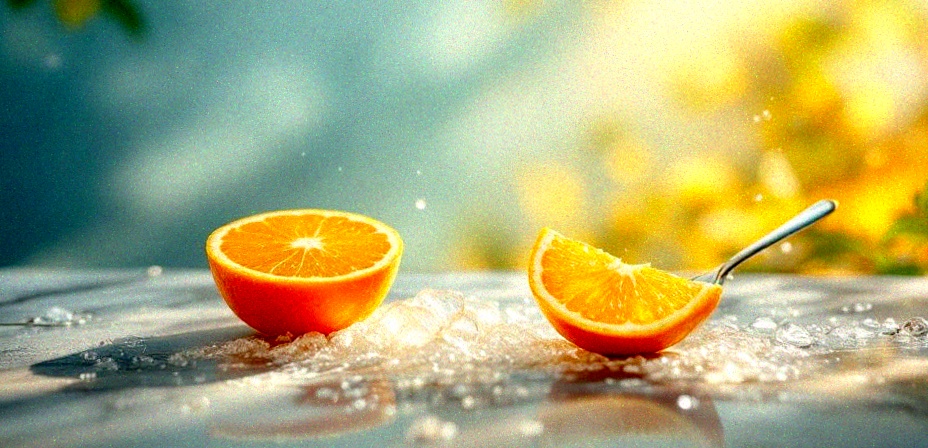Your cart is currently empty!
Takeaways
- Vitamin C may help prevent kidney stones when consumed in moderation
- Proper hydration works with vitamin C to reduce stone formation
- A balanced diet rich in fruits and vegetables supports kidney health
- Excessive vitamin C intake could increase oxalate levels in some people
- Consulting a doctor is wise for personalized kidney stone prevention
- Lifestyle factors like exercise also influence kidney stone risk
Understanding Vitamin C
Vitamin C is a vital nutrient that the body requires for proper function. It is a water-soluble vitamin, meaning it dissolves in water, and possesses a straightforward chemical makeup. Since our bodies cannot produce vitamin C, we must obtain it through our diet or by taking supplements.
Vitamin C is found in many different fruits and vegetables. Good sources include citrus fruits like oranges, various types of berries, and leafy green vegetables. Once eaten, the small intestine absorbs the vitamin C, which then travels through the bloodstream to be used by the body.
Vitamin C works as an antioxidant, helping to protect cells from damage. Additionally, it’s essential for the production of collagen, a protein important for healthy skin and bones. A well-functioning immune system also relies on a sufficient intake of vitamin C.
Kidney Stones: A Painful Reality
What Are Kidney Stones?
Kidney stones are hardened deposits that develop inside the kidneys. These formations consist of minerals and salts present in urine. They can vary greatly in size, from very small specks to larger, pebble-like formations.
Several types of kidney stones exist. Calcium oxalate stones are the most common type. Other types include stones made of uric acid and struvite. The specific conditions within the body determine which type of stone forms.
Kidney stones develop when substances in the urine become too concentrated. These materials then form crystals and stick together, gradually increasing in size. Over time, these larger formations can cause pain and other symptoms.
Symptoms and Diagnosis
Kidney stone symptoms can be quite intense. A common symptom is severe pain felt in the side, back, or lower abdomen. People may also experience:
- Painful urination
- Blood in urine
- Nausea and vomiting
- Frequent urge to urinate
Doctors employ several methods to diagnose kidney stones. X-rays, CT scans, and ultrasounds can reveal stones within the urinary tract. Blood and urine tests are used to determine the specific type of kidney stone.
Several factors increase the risk of developing kidney stones:
- Not drinking enough water
- Eating a diet high in salt and animal protein
- Being overweight or obese
- Having certain medical conditions
- Family history of kidney stones
The Vitamin C-Kidney Stone Connection
Historical Perspective
For many years, it was believed that high intakes of vitamin C could cause kidney stones. This idea began in the 1970s when early studies suggested a possible connection between vitamin C and the production of oxalate in the body.
Researchers have studied this topic extensively. Some studies did find that large doses of vitamin C could increase the amount of oxalate in urine. This sparked concerns about the role of vitamin C supplements in the formation of kidney stones.
Current Scientific Understanding
The body processes vitamin C in a complex manner. A portion of the vitamin C is converted into oxalate, a compound commonly found in kidney stones. However, the amount of oxalate produced through this process can vary from person to person.
More recent research presents a different understanding. Many current studies show no strong link between typical vitamin C intake and kidney stone development. Some evidence even suggests that vitamin C might help prevent stones1.
| Vitamin C Intake | Potential Effect on Kidney Stone Risk |
|---|---|
| Low (< 90 mg/day) | May increase risk due to inadequate intake |
| Moderate (90-500 mg/day) | May decrease risk for most people |
| High (500-1000 mg/day) | Mixed results, may increase risk in some |
| Very High (> 1000 mg/day) | Possible increased risk, more research needed |
Vitamin C’s Protective Effects Against Kidney Stones
Urine Acidification
Vitamin C can make the urine more acidic. This change in the urine’s pH level may actually help prevent certain types of kidney stones, like uric acid stones, which are more likely to form in alkaline urine.
The ideal urine pH for kidney stone prevention varies. For most people, a slightly acidic urine, with a pH between 6.0 and 6.5, is considered best. This range can potentially help prevent both calcium and uric acid stones.
Citrate Production
Citrate is a naturally occurring substance that can help prevent kidney stones. It does this by binding to calcium in the urine, preventing the calcium from forming stones. Some research suggests that vitamin C might help increase citrate levels.
Vitamin C might influence citrate levels in two ways. First, it could potentially increase the production of citrate directly. Second, by making the urine more acidic, it could reduce the breakdown of citrate.
Antioxidant Properties
Oxidative stress is a factor that can contribute to kidney stone formation. It can cause damage to kidney cells, which in turn may promote stone growth. Because of its antioxidant properties, vitamin C could potentially help to prevent this damage.
Vitamin C helps to neutralize harmful free radicals in the body. By reducing oxidative stress, it might offer protection against kidney stone formation. This protective effect could be especially important within the kidneys.
- Scavenges free radicals in kidney tissue
- Supports the body’s natural antioxidant systems
- May reduce inflammation associated with stone formation
- Protects kidney cells from oxidative damage
- Helps maintain healthy kidney function
Recommended Vitamin C Intake for Kidney Stone Prevention
Daily Requirements
Most adults need between 65 and 90 mg of vitamin C daily. This amount supports general health and may help prevent the formation of kidney stones. However, individual needs can vary.
Several factors impact a person’s vitamin C requirements, including age, gender, and overall health status. For example, smokers typically need more vitamin C than non-smokers.
| Age Group | Recommended Daily Vitamin C Intake |
|---|---|
| Adults (19-64) | 65-90 mg |
| Pregnant Women | 85 mg |
| Breastfeeding Women | 120 mg |
| Smokers | Add 35 mg to above values |
Supplementation vs. Natural Sources
Getting vitamin C from food sources is often preferable to supplements. Fruits and vegetables offer additional benefits, such as fiber and other nutrients, that support overall health and may aid in kidney stone prevention.
Vitamin C supplements can be beneficial for some people. However, high doses might increase oxalate levels in some individuals. It’s best to consult with a doctor before starting any supplement.
Foods that are good sources of vitamin C for kidney stone prevention:
- Citrus fruits (oranges, grapefruits)
- Berries (strawberries, blueberries)
- Kiwi fruit
- Bell peppers
- Broccoli
- Leafy greens (spinach, kale)
Other Dietary Considerations for Kidney Stone Prevention
Hydration
Drinking enough water is a key part of preventing kidney stones. Adequate fluid intake dilutes the urine, making it more difficult for stones to form.
Most people should aim to drink 8 to 10 cups of water per day. This amount can vary depending on the climate and a person’s activity level. Herbal teas and other beverages can also contribute to daily fluid intake.
Calcium Intake
Contrary to previous beliefs, calcium can actually help prevent kidney stones. It binds to oxalate in the digestive tract, reducing the amount of oxalate absorbed by the body, and preventing it from reaching the kidneys.
Adults should aim to consume 1000 to 1200 mg of calcium daily. Good sources include:
- Dairy products
- Leafy green vegetables
- Fortified plant-based milks
- Canned fish with soft bones
Oxalate Management
Oxalate is a compound found in many foods and is also produced within the body. High levels of oxalate can contribute to calcium oxalate stones. Managing oxalate intake can be helpful in preventing these types of stones.
Reducing oxalate intake does not mean completely avoiding all foods high in oxalate. Instead, focus on a balanced approach. Combining high-oxalate foods with calcium-rich foods can reduce the absorption of oxalate.
Low-oxalate foods that are good sources of vitamin C:
- Oranges and orange juice
- Grapefruit
- Strawberries
- Bell peppers
- Cauliflower
- Cabbage
Lifestyle Factors in Kidney Stone Prevention
Diet isn’t the only factor in kidney stone prevention. Several lifestyle choices can also affect the risk of stone formation. Making healthy lifestyle changes can help lower this risk.
Regular exercise can help prevent kidney stones in several ways. It can help maintain a healthy weight and also promotes good circulation and kidney function. Aim for at least 30 minutes of moderate exercise on most days of the week.
Lifestyle changes that can help reduce the risk of kidney stones:
- Maintain a healthy weight
- Exercise regularly
- Limit sodium intake
- Moderate animal protein consumption
- Avoid crash diets
- Quit smoking
When to Consult a Healthcare Professional
Certain symptoms require prompt medical attention. Severe pain, fever, or difficulty urinating are signs that something serious could be happening. Do not hesitate to seek medical help if you experience these symptoms.
Regular checkups are especially important for individuals with a history of kidney stones. Your doctor can monitor your risk factors and recommend preventative strategies or treatments.
Healthcare providers offer personalized advice for preventing kidney stones. They can:
- Analyze your stone composition
- Evaluate your diet and lifestyle
- Recommend specific dietary changes
- Prescribe medications if necessary
- Monitor your progress over time
FAQs: People Also Ask
Can vitamin C cause kidney stones?
How much vitamin C is too much for kidney stone formers?
Does lemon juice help prevent kidney stones?
Are some types of vitamin C supplements better for preventing kidney stones?
Can drinking orange juice increase the risk of kidney stones?
How long does it take for dietary changes to affect kidney stone formation?
Conclusion
Vitamin C’s role in kidney stone prevention is complex. Moderate intake through a balanced diet is more likely to be beneficial than harmful. It can provide antioxidant benefits and support overall kidney health.
However, excessive vitamin C supplementation could increase the risk of kidney stones in some people. Balance is key. It’s generally best to get the recommended daily intake from food sources whenever possible.
Remember, vitamin C is only one piece of the puzzle. Proper hydration, a balanced diet, and a healthy lifestyle are all important for preventing kidney stones. These factors work together to support healthy kidney function.
If you are concerned about kidney stones, consult a healthcare professional. They can provide personalized advice based on your specific risk factors and medical history. With the correct approach, you can take active steps to prevent kidney stones and maintain good kidney health.
1. Ferraro, P. M., Curhan, G. C., Gambaro, G., & Taylor, E. N. (2016). Total, Dietary, and Supplemental Vitamin C Intake and Risk of Incident Kidney Stones. American Journal of Kidney Diseases, 67(3), 400–407. https://www.ncbi.nlm.nih.gov/pmc/articles/PMC4769668/
2 Kang, D. E., Sur, R. L., Haleblian, G. E., Fitzsimons, N. J., Borawski, K. M., & Preminger, G. M. (2007). Long-term lemonade based dietary manipulation in patients with hypocitraturic nephrolithiasis. The Journal of Urology, 177(4), 1358–1362. https://pubmed.ncbi.nlm.nih.gov/17382731/
3 Taylor, E. N., & Curhan, G. C. (2008). Fructose consumption and the risk of kidney stones. Kidney International, 73(2), 207–212. https://www.ncbi.nlm.nih.gov/pmc/articles/PMC2384604/
4 Prezioso, D., Strazzullo, P., Lotti, T., Bianchi, G., Borghi, L., Caione, P., Carini, M., Caudarella, R., Ferraro, M., Gambaro, G., Gelosa, M., Guttilla, A., Illiano, E., Martino, M., Meschi, T., Messa, P., Miano, R., Napodano, G., Nouvenne, A., … Zattoni, F. (2015). Dietary treatment of urinary risk factors for renal stone formation. A review of CLU Working Group. Archivio Italiano di Urologia e Andrologia, 87(2), 105–120. https://www.pagepressjournals.org/index.php/aiua/article/view/aiua.2015.2.105
5 Curhan, G. C., Willett, W. C., Speizer, F. E., & Stampfer, M. J. (1999). Intake of vitamins B6 and C and the risk of kidney stones in women. Journal of the American Society of Nephrology, 10(4), 840–845. https://jasn.asnjournals.org/content/10/4/840
6 Siener, R., Ebert, D., Nicolay, C., & Hesse, A. (2003). Dietary risk factors for hyperoxaluria in calcium oxalate stone formers. Kidney International, 63(3), 1037–1043. https://www.kidney-international.org/article/S0085-2538(15)48991-1/fulltext
7 Borghi, L., Schianchi, T., Meschi, T., Guerra, A., Allegri, F., Maggiore, U., & Novarini, A. (2002). Comparison of two diets for the prevention of recurrent stones in idiopathic hypercalciuria. The New England Journal of Medicine, 346(2), 77–84. https://www.nejm.org/doi/full/10.1056/NEJMoa010369
8 Ferraro, P. M., Taylor, E. N., Gambaro, G., & Curhan, G. C. (2013). Soda and other beverages and the risk of kidney stones. Clinical Journal of the American Society of Nephrology, 8(8), 1389–1395. https://www.ncbi.nlm.nih.gov/pmc/articles/PMC3731916/
9 Nouvenne, A., Meschi, T., Prati, B., Guerra, A., Allegri, F., Vezzoli, G., Soldati, L., Gambaro, G., Maggiore, U., & Borghi, L. (2010). Effects of a low-salt diet on idiopathic hypercalciuria in calcium-oxalate stone formers: a 3-mo randomized controlled trial. The American Journal of Clinical Nutrition, 91(3), 565–570. https://academic.oup.com/ajcn/article/91/3/565/4597137
10 Sorensen, M. D., Hsi, R. S., Chi, T., Shara, N., Wactawski-Wende, J., Kahn, A. J., Wang, H., Hou, L., Stoller, M. L., & Women’s Health Initiative Writing Group. (2014). Dietary intake of fiber, fruit and vegetables decreases the risk of incident kidney stones in women: a Women’s Health Initiative report. The Journal of Urology, 192(6), 1694–1699. https://www.ncbi.nlm.nih.gov/pmc/articles/PMC4525187/
11 Pearle, M. S., Goldfarb, D. S., Assimos, D. G., Curhan, G., Denu-Ciocca, C. J., Matlaga, B. R., Monga, M., Penniston, K. L., Preminger, G. M., Turk, T. M., White, J. R., & American Urological Association. (2014). Medical management of kidney stones: AUA guideline. The Journal of Urology, 192(2), 316–324. https://www.auanet.org/guidelines/guidelines/kidney-stones-medical-mangement-guideline
12 Yao, L., Huang, J., & Li, Y. (2020). The protective effects of antioxidants in nephrolithiasis. Oxidative Medicine and Cellular Longevity, 2020, 1–13. https://www.ncbi.nlm.nih.gov/pmc/articles/PMC7190051/
13 Borghi, L., Meschi, T., Amato, F., Briganti, A., Novarini, A., & Giannini, A. (1996). Urinary volume, water and recurrences in idiopathic calcium nephrolithiasis: a 5-year randomized prospective study. The Journal of Urology, 155(3), 839–843. https://pubmed.ncbi.nlm.nih.gov/8583588/
14 Taylor, E. N., Stampfer, M. J., & Curhan, G. C. (2004). Dietary factors and the risk of incident kidney stones in men: new insights after 14 years of follow-up. Journal of the American Society of Nephrology, 15(12), 3225–3232. https://jasn.asnjournals.org/content/15/12/3225
15 Xu, C., Zhang, C., Wang, X. L., Liu, T. Z., Zeng, X. T., Li, S., & Duan, X. W. (2015). Self-Fluid Management in Prevention of Kidney Stones: A PRISMA-Compliant Systematic Review and Dose-Response Meta-Analysis of Observational Studies. Medicine, 94(27), e1042. https://www.ncbi.nlm.nih.gov/pmc/articles/PMC4504606/
Last medically reviewed and fact checked on
Colors Nutrition does not provide medical advice, diagnosis, or treatment.



